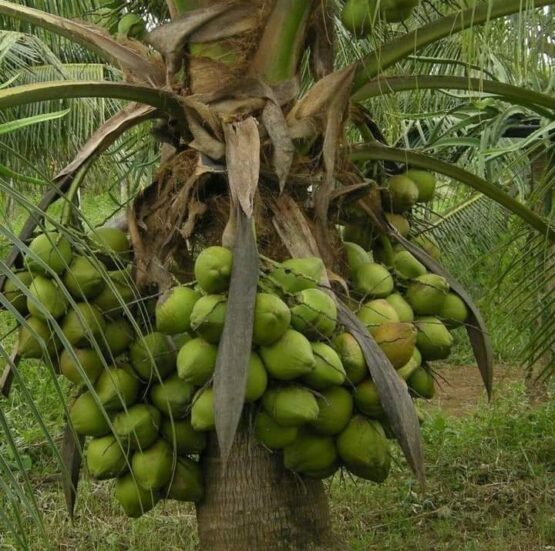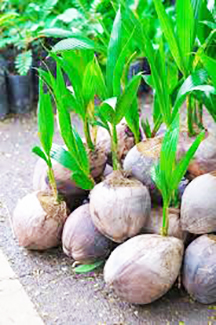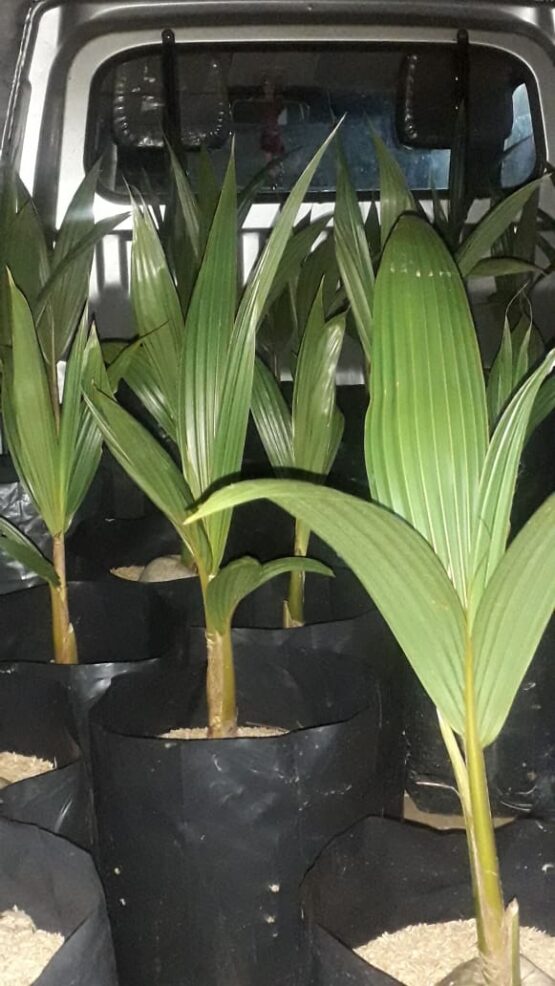Hybrid Coconut Plant Price: Why It’s Worth the Investment for Modern Farming
As agriculture evolves with modern technology and methods, farmers constantly seek innovative ways to boost productivity and profitability. One such innovation gaining popularity is the cultivation of hybrid coconut plants. These plants offer several benefits, making them a worthwhile investment for modern farming in Sri Lanka. This article explores the hybrid coconut plant price and why it’s a smart investment.
Hybrid coconut plants result from cross-breeding between two coconut varieties. They provide higher yields, resist diseases, and have a shorter growing period compared to traditional coconut plants. These features make them a preferred choice for increasing coconut production.
The price of hybrid coconut plants in Sri Lanka varies based on the variety and supplier. Although the initial cost may be higher than traditional plants, the long-term advantages outweigh this expense. Here are the reasons why investing in hybrid coconut plants benefits modern farming in Sri Lanka
Increased Coconut Production with Higher Yields
One of the main reasons why hybrid coconut plants are worth the investment is their higher yield. These plants are known to produce more coconuts per tree compared to traditional varieties. This means that farmers can harvest more coconuts from the same land, ultimately increasing their profits. The average yield of a hybrid coconut plant is around 180-200 coconuts per tree per year, which is significantly higher than traditional varieties.

Disease-Resistant Coconut Varieties
Coconut trees are susceptible to various diseases, which can significantly impact their yield and quality. Traditional coconut plants are vulnerable to diseases such as lethal yellowing, which can cause the tree to die within a few years. Hybrid coconut plants, on the other hand, are known to be resistant to such diseases, making them a more reliable option for farmers. This also means that farmers can save on the costs of pesticides and other disease control measures.
Faster Coconut Harvest with Shorter Growing Periods
Traditional coconut plants take 6-7 years to bear fruit, while hybrids require only 3-4 years. This shorter growing period allows farmers to see returns on their investment sooner. Faster crop turnover enhances productivity and profitability.

Adaptability to Different Climates
Sri Lanka has a diverse climate, and traditional coconut plants may not perform well in all regions. However, hybrid coconut plants are known to adapt well to different climatic conditions, making them suitable for cultivation in various parts of the country. This opens up opportunities for farmers to expand their business and increase their profits by growing hybrid coconut plants in different regions.
Better Quality Coconuts
The quality of coconuts produced by hybrid coconut plants is known to be superior to traditional varieties. These coconuts are bigger, have more water, and thicker meat, making them more desirable in the market. Additionally, the oil extracted from hybrid coconuts is also of higher quality, making it a profitable choice for farmers.
Investing in hybrid coconut plants not only increases the quantity of coconuts but also improves the quality, making it a win-win situation for farmers.

Lower Maintenance Cost
Hybrid coconut plants require less maintenance compared to traditional varieties. As mentioned earlier, they are resistant to diseases, reducing the need for pesticides and other disease control measures. Additionally, these plants also require less water and fertilizer, ultimately reducing the overall maintenance cost for farmers.
Government Support
The Sri Lankan government has been promoting the cultivation of hybrid coconut plants as a sustainable and profitable option for farmers. They have introduced various subsidy programs and loans to encourage farmers to invest in hybrid coconut plants. This support from the government makes it easier for farmers to afford the initial investment and reap the long-term benefits of hybrid coconut farming.
In Conclusion
The hybrid coconut plant price in Sri Lanka may seem high initially, but the long-term benefits make it a worthwhile investment for modern farming. With higher yields, disease resistance, shorter growing period, adaptability to different climates, better quality coconuts, lower maintenance cost, and government support, hybrid coconut plants are a profitable choice for farmers. So, if you are looking to increase your coconut production and profitability, consider investing in hybrid coconut plants.
Resources for Further Information
- Coconut Research Institute of Sri Lanka: Learn more about hybrid coconut varieties and cultivation practices.
- Latest Recommendations from the Coconut Research Institute: Get updated guidelines on hybrid coconut cultivation.















